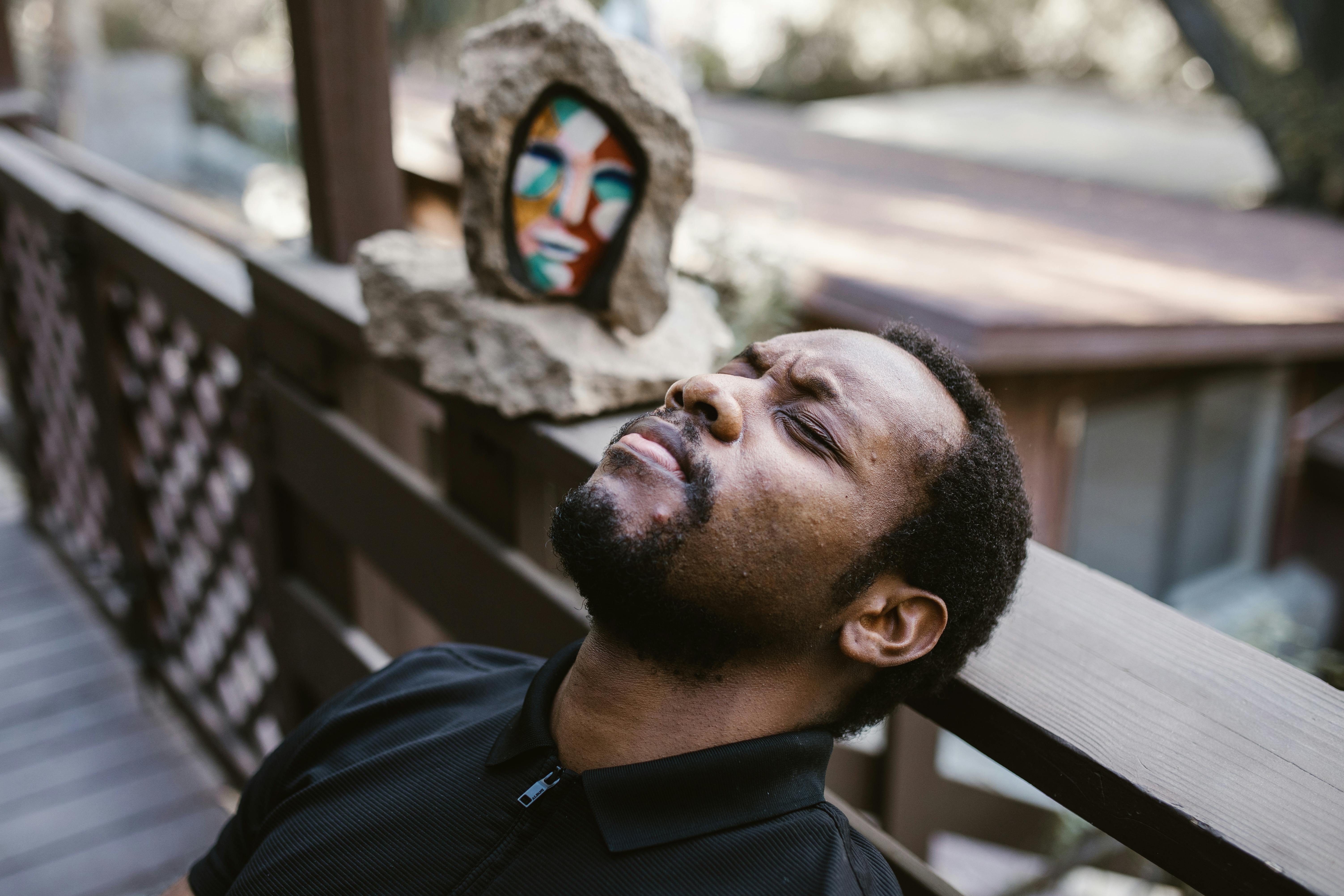The most common notion of the day is “Obedience is a virtue and disobedience is a vice.” However, looking at history, we see a clear trend that it was through disobedience that we were able to achieve what we have achieved thus far. However, through obedience, we as humans only manage to create chaos and discomfort for all other humans.
The lifestyle of the Kalahari pygmies is the most primitive lifestyle source that we can find in modern society today. These people resemble the lives of the primitive man who walked the earth before Christopher Columbus landed in the American hemisphere. Despite all the war and changes in the world, these people seem to be the happiest people living in what we call hell, the unforgiving Kalahari Desert. They do not know of obedience to any system or man, they live in a symbiotic relationship with nature and over time, they have learned to enrich this relationship to the point where they can find water in the desert and live a very peaceful life in isolation.
Now looking at the other side of the dice, we, at our convenience, have trouble being truly independent. Because society has created us as a wheel of this self-destructive society directed by embedding “Obedience” in all aspects of our life, than to become operators of this machine called society, allowing us to be independent and disobedient. The problem is that the social operator turns the machine in a direction in which all the wheels will follow one after another in obedience and no one stops, which leads to the end of the days.
The common notion is: “Obedience is a virtue and disobedience is a vice.” However, when we look at our history to understand how we as humans came to be what we are, we see that the common notion about obedience is a false virtue. As the famous psychologist and author Erich Fromm says, “Human history began with an act of disobedience” (Fromm 246). Through the ages, from a Paleolithic man to a Neolithic man, due to various acts of disobedience such as challenging the knowledge that Paleolithic man possessed as a hunter and cave dweller, we managed to achieve our mental and spiritual growth to reach the peaks of the space age.
Also, looking at this from the religious aspect, we see that throughout the Bible it was due to disobedience that man began to free himself. King David’s disobedience regarding the association with Bathsheba started the lineage of Jesus, who is the ultimate symbol of freedom and all that is good. Furthermore, throughout the Bible we see Jesus constantly defying the law of Israel to free the people of Israel from the Pharisaical law (Garrett Luke 23: 1, 23: 24).
In addition to religion, when looking at the world socio-political scene we see that due to various acts of disobedience on the part of a handful, many people were able to enjoy freedom. George Washington and John Adams, branded traitors by the British for disobeying their law, created what we know as the United States; Abraham Lincoln, against the majority agrees to almost divide the country and create a civil war abolished slavery. Likewise, Martin Luther King Jr., by disobeying the common notion of segregation, set our fellow African-American citizens free, allowing us to have an African-American president in 2009, ushering in a new era in American history.
However, we remain attached to the theory of obedience as a virtue. Looking back in history, we see that our slavery of obeying at all costs or the “Go with the wave” mentality resulted in the end of civilizations. The destruction of Troy VII (Thompson), beyond the myth, we see as a decision made by the minor city-states of the Greek Empire to seize the best trading post and have the monopoly of trade in the Aegean Sea that ended the age of gold of Athens. (Thompson). In addition, during Roman times the assassination of Gaius Julius Caesar by Brutus, despite what Shakespeare says, was an act of obedience to the Senate, which led to the death of a great leader and 16 years of bloodbath that concluded the Roman era. the pages of history (Richard 175).
Volumes of books can be written based on the theme of how much obedience at the end of days has contributed to many strong civilizations and systems. So what makes man more likely to obey than to disobey? The human being is a social creature, during childhood man learns by copying what others do in his environment. When the mother points to the father and says “papa”, the baby with time points is the male figure that is always around the mother and says “papa” without knowing if this male figure is really his father or not.
In the same way, it is during childhood that we learn the art of pleasing people and giving up our independent thinking. By doing something that makes Mom and Dad happy, you get a reward, and when you please your teachers, you finish school easily. This relationship between a student and the school is a perfect example of how we mold ourselves to be obedient and not disobedient; a sticky thorn in the heel of people that keeps us locked in foreign paradises. As the child grows, he has become so dependent on other people that his entire life has become a mirror of another person. The fact that the type of hair cream, the car we drive, our partners we choose, even the toilet paper we flush down the toilet reflects the needs of our friends, and keeps us chained to a false sense of security and obedience. . For one to be truly free and independent, one must “have the courage to say no to powers (and) disobey.” (Since 249).
Subsequently, we cannot say No to the powers that we have in our hands, be it religious, governmental, educational or any other, because of the sense of power that we feel when obeying it and the sense of security that we feel. Furthermore, the three-line experiment discussed by Solomon E Asch in is the article “Opinions and Social Pressure” where an individual subject, when put under pressure by a majority on an opinion of good or bad. The subject tends to be wrong in his opinions when trying to satisfy the opinion of the majority despite being right in his individual opinion (Asch 207). This clearly shows us that social pressure also plays an important role in why we cannot say no.
The importance of being independent in our opinions and decisions is beneficial not only for us as individuals but also for the entire world. By studying systems like the Third Reich designed to reach all aspects of all social levels, we see that when man obeys authority without hesitation, its effects can be devastating not only for the individual but for the entire world. The end of World War II on November 25, 1945, initiated the final chapter of Hitler’s Germany, which was the ultimate obedience structure and the first chapter of humanity. The Nuremberg trials where all war criminals faced charges for their reversals with the Holocaust, gave us a good overview of the extreme capacity for obedience that human beings possess even to kill 5 million people because the hierarchy authorized it.
During the trial, not all of the defendants pleaded guilty, but except for a few, all of the defendants were guilty of counts three and four (Crimes against humanity) (Taylor and Kent 14), after which the prosecution provided witnesses and evidence, including the shrunken one. heads from the Buchenwald concentration camp. When asked why the defense committed these monstrosities, the common summarized answer was “I was obeying orders.” Taking the testimony of Auschwitz commander Rudolf Hoess to Dr. Kauffmann on the trails of Nuremberg (Monday, April 15, 1946), it is more than obvious to say that despite one’s own disturbing conscience, killing so many men, women and children was justified by obedience to the law. orders given by the state (Stackelberg and Winkle 374). Furthermore, when Adolf Eichmann faced trial on April 11, 1961 for participating in the final solution we know as the Holocaust, his answers to the questions of why he did these monstrosities were simple: “I was a soldier and I followed orders. “,” I never did anything, big or small, without first obtaining express instructions from Adolf Hitler or any of my superiors. ” (Eichman)
However, one can be obedient to a system or a person if he is “all good, all wise: (the system) must become omniscient” (Fromm 249). This is where Jesus and his ministry come in as a great example. “Jesus not only violated the law, but defined what the law should be” (Crawford 35), he was obedient to God, who is omniscient and perfect. However, the world we live in and the leaders we decide to follow from church to government are not perfect like God, even though many leaders preach freedom, a free system cannot exist without disobedience, taking away the freedom to disobey. taking away freedom itself.
Finally, just like the times when the industrial revolution ignited the boiling pot that led to WWI and WWII, modern space and nuclear technology is lighting the next boiling pot. Since many countries, including world powers, are constantly at war with each other, all that is needed is an obedient soldier and a stubborn and obedient commander and there is bound to be a nuclear holocaust. Therefore, it will not be through an act of disobedience, but through an act of obedience that will bring about the end of days.
Cited works
Asch, Solomon E. “Opinions and social pressure”. Behrens, Laurence, and Leonard J Rosen. Writing and reading throughout the curriculum. 3rd. New York: Pearson, 2009. 206-212.
Crawford, Curtis. Civil disobedience A case book. New York: Thomas Y. Crowell Company, 1973.
Fromm, Erich. “Disobedience as a psychological and moral problem”. Behrens, Laurence, and Leonard J Rosen. Writing and reading throughout the curriculum. New York: Pearson Longman, 2008. 245-250.
Garrett, Dr. Duane A. New International Version of the Archaeological Bible. Michigan: Zondervan, 2005.
Richard, Carl J. Twelve Greeks and Romand who changed the world. Maryland: Rowman and Littlefield, 2003.
Stackelberg, Roderick, and Anne Sally Winkle. The Nazi Germany Reference Book: An Anthology of Texts. London and New York: Routledge, 2002.
Taylor, Richard Norton and Nicolas Kent. Nuremberg. London: Nick Hern Books, 1997.
Thompson, Diane. The Trojan War: Literature and Legend from the Bronze Age to the Present Day. North Carolina: Mc Farland, 2004.
Trial of Adolf Eichmann [VHS]. Perf. Adolph Eichman. 1961.









